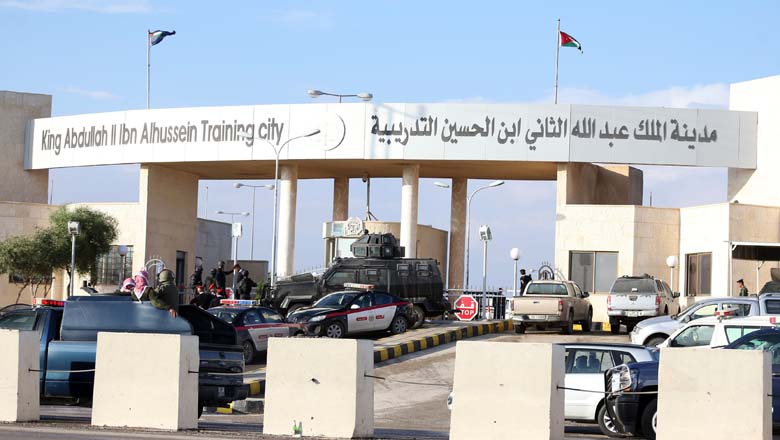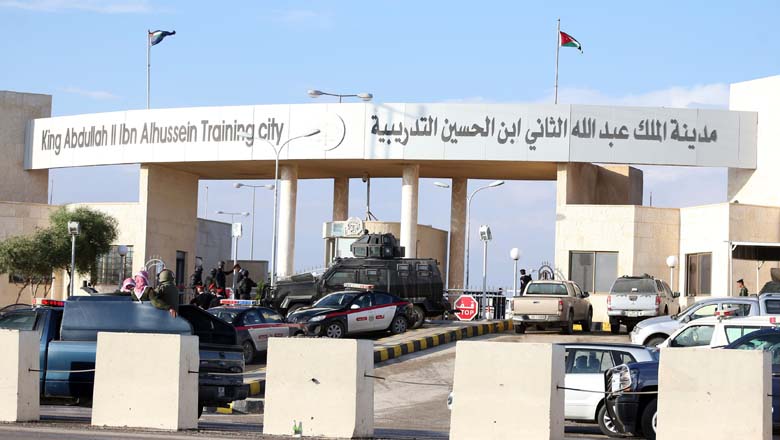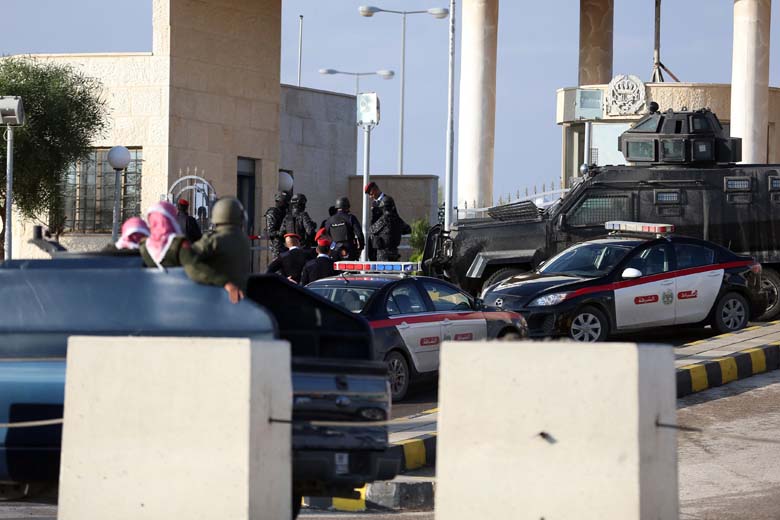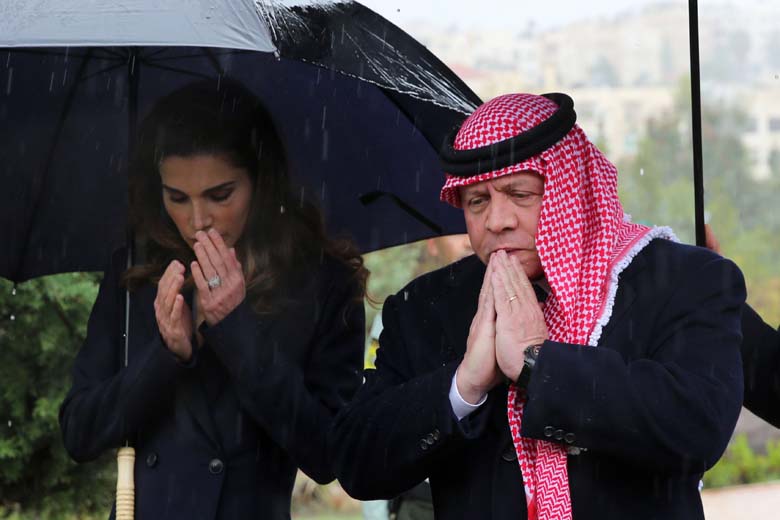
Police officers and security forces stand guard outside the police station where authorities say 8 people shot in Jordan. (Getty)
A 28-year-old police captain killed two Americans as well as three others at a training facility in the Middle East on November 9. The gunman, Anwar Abu Zaid, was shot dead during the attack. He was a native of the city of Jerash in Jordan, the country where the shooting occurred. No motive has been made public by authorities in Jordan while the entire world speculates that this could have been a terrorist attack.
Here’s what we know so far:
1. He Was ‘Religious But Moderate’

Police officers and security forces stand guard outside the police station where authorities say 8 people shot in Jordan. (Getty)
According to reporter Zaid Benjamin, Abu Zaid applied to be decommissioned from the police force in October 2015. Meanwhile another reporter based in the region, Hasan Sari, tweeted that Abu Zaid’s family have refused to bury him until the circumstances of the shooting are known. In the Muslim faith, it’s commonplace to bury the deceased as soon as possible. The Jordan Times reports that he lived in the village of Rimoun. He graduated from the military school at Mutah University and was married with two kids, a boy and girl. A relative told the paper that while he was religious, he was also “moderate.” That same person said that the entire town of Rimoun is in “complete shock.”
2. He Was a Senior Trainer at the Police Facility
In addition to being a captain at the base, Abu Waid was also a senior trainer at the US-funded Jordan International Police Training Center, reports Al Bawaba. The base is located on the outskirts of the Jordanian capital of Amman. According to the BBC, it was constructed in 2003 in the suburb of Muwaqqar, to the east of Amman. It’s run by the Jordanian Public Security Directorate. It was originally set up to train in Iraqi cops after the 2003 U.S.-led invasion. More than 50,000 personnel have been trained there. In addition to training potential Iraqi officers, the facility also trains Palestinian Presidential Guard and National Security Forces from the West Bank.
3. He Was Shot Dead by His Co-Workers
One of the Jordanian government’s spokesmen, Mohammed Momani, told the media that earlier reports that Abu Zaid had killed himself were incorrect. Momani said that he was killed by several fellow trainers at the facility who returned fire on him. A statement from the U.S. Embassy in Amman said it’s too early “to speculate on motive at this point.” That communiqué also says that there are no changes to the security arrangements at the facility as a result of the attack. Meanwhile President Obama said that his administration were taking the attack “very seriously.”
4. The Americans Killed Are ‘Government Contractors’

(Getty)
Only one of the victims, a Jordanian translator who worked at the base, Kamal al-Malkawi, has been named. The two Americans and the one South African who were killed have yet to be identified. The Washington Post refers to both Americans as “government contractors.”
5. The Attack Came on the 10-Year Anniversary of Jordan’s Worst Ever Terrorist Attack

Jordan’s King Abdullah II (R) and his wife Queen Rania recite the Fatiha, or Islam’s prayer of the dead, during a memorial service marking the tenth anniversary of the Amman bombings, on November 9, 2015, in the capital Amman. (Getty)
This attack happened on the 10-year anniversary of the 2005 Amman bombings when 60 people died after a series of suicide attacks inside hotels in Jordan. The responsibility for that incident fell upon the shoulders of Al-Qaeda’s Iraq-brigade. They claimed the bombings were a response to Jordan’s pro-western policies. The BBC notes in its report on the November 9 shooting that Jordan “strongly supports the US-led coalition against Islamic State militant in Syria.